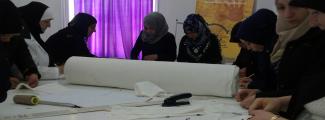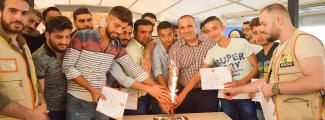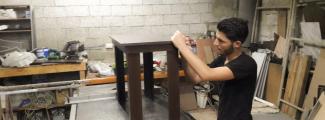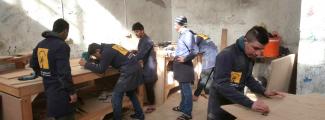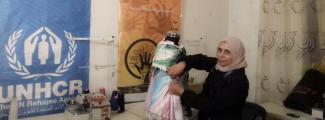Vocational training and skill development is an ongoing process during someone’s life, closely corresponding to her/his needs as an individual and a social being. It seeks to empower the trainee by involving her/him in advanced professional training workshops. Vocational training and skill development are a precious tool to give each individual a full opportunity to perform the work, raise one’s professional competence, and develop one’s abilities that help her/him achieve the greatest benefit on the personal, family and community levels.
Vocational training aims at providing individuals with professional knowledge and experience in a scientific and thoughtful manner, in order to invest into active human resources. This will improve the chances of people affected by the Syrian crisis to enter the labor market, becoming productive persons in accordance with the available means instead of mere consumers. Vocational training is aimed both at people who do not have the skills, so as to enhance their professional abilities, and those who possess the skills, so they could complete and collect the information and knowhow they lack and identify workable directions for performing their occupation in a highly efficient and effective manner.
Vocational training operates within three integrated and interrelated pathways to reach the goal:
- Working with and qualifying women as part of a training program to improve their social and economic conditions so they could achieve a decent life for their families and to point them toward starting their own businesses;
- Working in parallel on diverse vocations to spread the idea of resilience in relation to vocational training; and
- Establishing vocational models abiding by all the standards adopted according to the needs of the local labor market.
Vocational Training in 2018
The Vocational Training Programme is a high-quality performance programme that holds a major position in the SSSD human resource development system.
The SSSD team’s efforts have converged in both needs assessment and rapid response in order to serve specifically household breadwinners, craftsmen who lost of their tools and marginalized individuals. The programme plan proceeds by interviewing people seeking VT to determine which type of training is most suitable for them, then crosschecking the demand with the market needs, on the basis of which customized quality trainings are offered to meet the needs of women, youth and PwSN.
Trainings have focused on people’s needs according to available VT areas, such as carpentry, men’s and women’s hairdressing, furniture spraying, wall painting, décor installation, car mechanics, household electricity, motorcycle maintenance, beekeeping, chef training (oriental and occidental cuisine + pastry), mobile phone maintenance, sewing and modelling, etc. In 2018, 2,454 persons benefited in 7 Syrian governorates.

